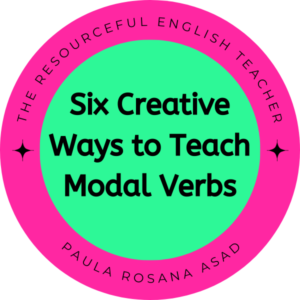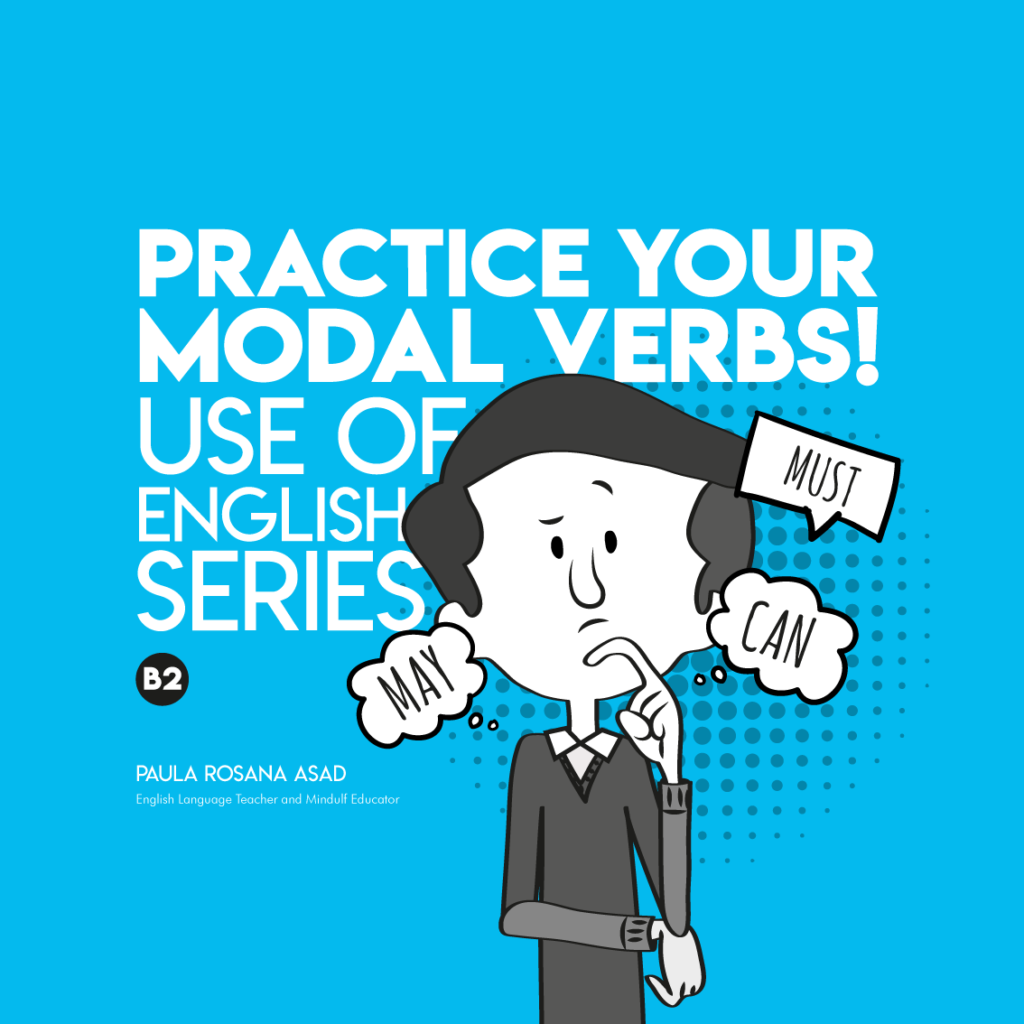Six Creative Ways to Teach Modal Verbs
Are you looking for creative ways to teach modal verbs that can truly engage your ESL students? Whether it’s expressing abilities or making requests, modal verbs are essential for conversations in English. In this blog post, we’ll take a closer look at how you can encourage students to use them in different situations, explore amazing quotes, and I’m also going to share some practical tips on creating lively and stimulating activities for the classroom. I really hope you’ll find these ideas incredibly helpful in assisting students to grasp the use of modal verbs. They’re designed to be engaging and supportive, making the learning process enjoyable and effective!
Getting down to the nitty gritty ….

Idea 1
Illustrate the Quote: You can provide students with different quotes and let them illustrate them to represent its meaning. Display their work of art around the classroom to serve as visual cues during lessons.
Quotes:
- “You must be the change you wish to see in the world.” – Mahatma Gandhi
- “You should never let your past dictate who you are, but let it be part of who you will become.” – Anonymous
- “You may not control all the events that happen to you, but you can decide not to be reduced by them.” – Maya Angelou
- “You can’t go back and change the beginning, but you can start where you are and change the ending.” – C.S. Lewis
Idea 2
Analyse the modal verbs used in songs. According to studies, music has a significant impact on both short-term and long-term memory. The repetitive melodies and lyrics of songs make them easily memorable for students, turning them into valuable learning aids. These are the ones I usually use for Modal Verbs:
- Cosmic Girl by Jamiroquai
- “Should’ve Said No” by Taylor Swift
- “Can’t Stop the Feeling!” by Justin Timberlake
Idea 3
Role-playing: Create scenarios or short dialogues where students can use modal verbs to express different situations, such as making requests, giving advice, or expressing abilities. Divide the class into groups and have them act out the scenes. This way, they can practice using modal verbs in a real-life context. Download for FREE a PDF with language for role-plays. CLICK HERE!
Have you checked out these resources?
Guided Role Plays. Speaking. Task Cards. Dialogues. Language Sheets.
Role Plays for EFL Learners Speaking Cards Worksheets Resources for ELT
Idea 4
Tarot Readers Card Game: Students can try predicting the future by role-playing as fortune tellers. In this fun role-playing activity, one student becomes the tarot reader, and the other takes on the role of the consultant. The consultant picks a card, and the tarot reader creates sentences based on the picture and keywords on the card. It’s a fantastic way to practice using “will,” “may,” and “might” in sentences. Best of all, you can get my tarot cards for FREE! Just CLICK HERE to download them. Give it a shot and have a blast predicting the future together! 
Idea 5
Charades: Two, or three students mime a situation and the rest guess what happened using modals for speculation.
Situations:
- You’ve received a gift you don’t like, you open it in front of the giver.
- You have found a puppy in the street and you are looking for the owner.
- You arrive late for school and the teacher tells you off.
- You witness a robbery and now the thieves are chasing you!
- You fall off your bike while going to school.
- You are hungry and your friend makes you a sandwich.
- You are drinking sour lemon juice.
- A swarm of bees is chasing you!
Idea 6
Dilemmas: Use this set of dilemmas to get students to practice the use of should/shouldn’t. Watch the Video!
- My parents want me to study Law but I want to be a dancer.
- I found a wallet on the school grounds.
- My best friend wants to give me a kitten but I already have a cat.
- I saw hurtful and offensive messages about a classmate on social media.
- My friends want to go to the cinema this Saturday but I want to go to the disco.
- A classmate asked me for help cheating on an exam.
If you need extra practice for your students on Modal Verbs, check out this resource! With your purchase, you’ll get: a chart with all modal verbs (ability, possibility, obligation, prohibition, absence of obligation, necessity, permission, and advice). Modal Verbs in the past. Different worksheets with lots of practice: sentence transformation, fill in the blanks, underline the correct form, rephrasing. Song for discussion and revision. Get the perfect practice tool your ESL students need today! CLICK HERE!
By incorporating some of these creative ideas into your teaching, you can effectively help your students practice and understand the use of modal verbs. Music, illustration, and role-playing are just some of the activities that can promote meaningful conversations and facilitate learning in an enjoyable and stimulating way. So don’t be afraid to experiment and devise your own activities, and watch your students take their modal verb skills to a whole new level. Let the learning begin!


